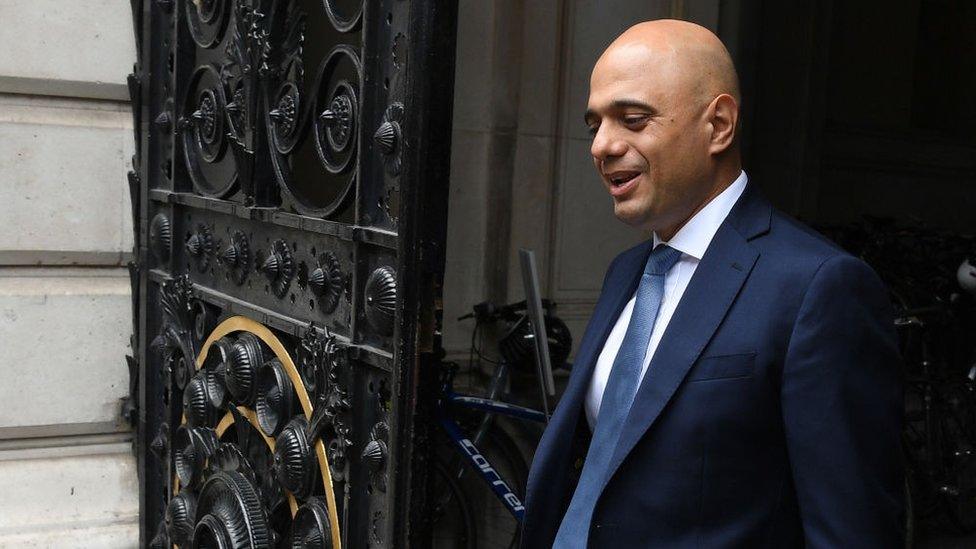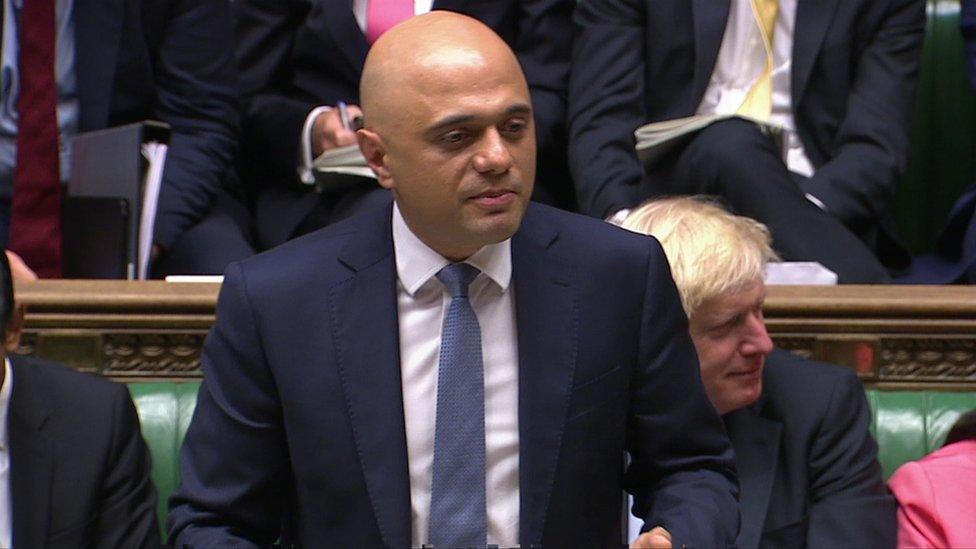Is this really the end of austerity?
- Published

Chancellor Sajid Javid is pumping money into public services that were problematic for the Conservatives at the last election
"Turning the page on austerity" with "no departmental spending cuts" - the purely political promise of what should have been one of the landmark economic days in the parliamentary calendar.
At 4.1% real terms growth next year in day-to-day spending, not only had the pattern of three spending plans over nine years of shrinking spend reversed, it was the highest average annual rate of growth in a review such as this for 15 years.
The funding now pouring into those public services was most visibly problematic for the Conservatives in the 2017 General election, ahead of yet another fairly imminent visit to the polls.
Courting voters
Health, education, and the police boosted just in time. Total departmental spending rising for the first time since before the crisis.
The political strategy will be clear: neutralise the toxicity of visible spending cuts made to shrink the deficit since the crisis, to help win over Leave voters in traditionally Labour seats.
And the good news for the Chancellor and the First Lord of the Treasury, the PM, is that there was some space for this spending.
Borrowing costs are low. And deficits have not been lower for 17 years too. So we will hear a lot about the phrase "fiscal headroom".
This was not extra money that can be spent, it is extra borrowing. It is room to borrow more within the Government's self-imposed overdraft limit of 2% of the value of the national economy.
On the buses
The magic number is £15bn. It had been £27bn, but there have been some changes in the way student loans are accounted, that have served the purpose of helping the Treasury apply at least some limits.
So £15bn it is, and £13.4bn was used in announcements to fund schools, further education, defence, policing, and buses.
Bus funding was the key tell. It proved a potent selling point for Labour at the 2017 General election.
But this was not the ordinary three year spending review. That has effectively been delayed until after Brexit.
This is a one year spending round. It is also being separated from the Budget.
This had the happy coincidence that there are no new independent fiscal forecasts from the Office of Budget Responsibility.
If there had been, it turns out that both because the economy has slowed since March, and also because the deficit is running larger than forecast, that £15bn number could be considerably smaller, perhaps more than halved.
On top of that, one has to note that the headroom was left by the previous Chancellor to help deal with the consequences of a No Deal Brexit.
The OBR said in July that even in a modest scenario that could mean a £30bn annual hit to the public finances.
Chasing votes
Whitehall sources say the Treasury had £50bn of spending bids from departments, which they filtered down to £13.8bn including some new capital spending.
The plan is not to just to spend the headroom that might not exist, but to go further in the coming weeks and cut taxes on fuel, housing and beyond.
Small wonder that the Chancellor confirmed at the next Budget the government's tax and spending constraints - its fiscal rules - will be reviewed. Generally speaking a new Chancellor wants to establish fiscal credibility in their first fiscal events.
The very point of the fiscal framework that has been created over the past few decades was to try to inject some long term thinking, some stability, and avoid the temptation to rig forecasts to enable unsustainable pre election giveaways.
A pre-election spending round risks undermining that. But that's a small price for the greater prizes sought by politicians within weeks of a possible election.
It can be afforded. But it is a significant shift in the framing of politics.
It is designed by the vote Leave government to recreate that winning coalition of voters again - especially in English Labour seats.
And the real question is whether the voters that matter give credit for the fact the UK is at a turning point and there will be more buses, policeman and teachers, or whether instead this is seen as a minor reversal from the significant cuts over the past decade.
- Published4 September 2019

- Published4 September 2019
